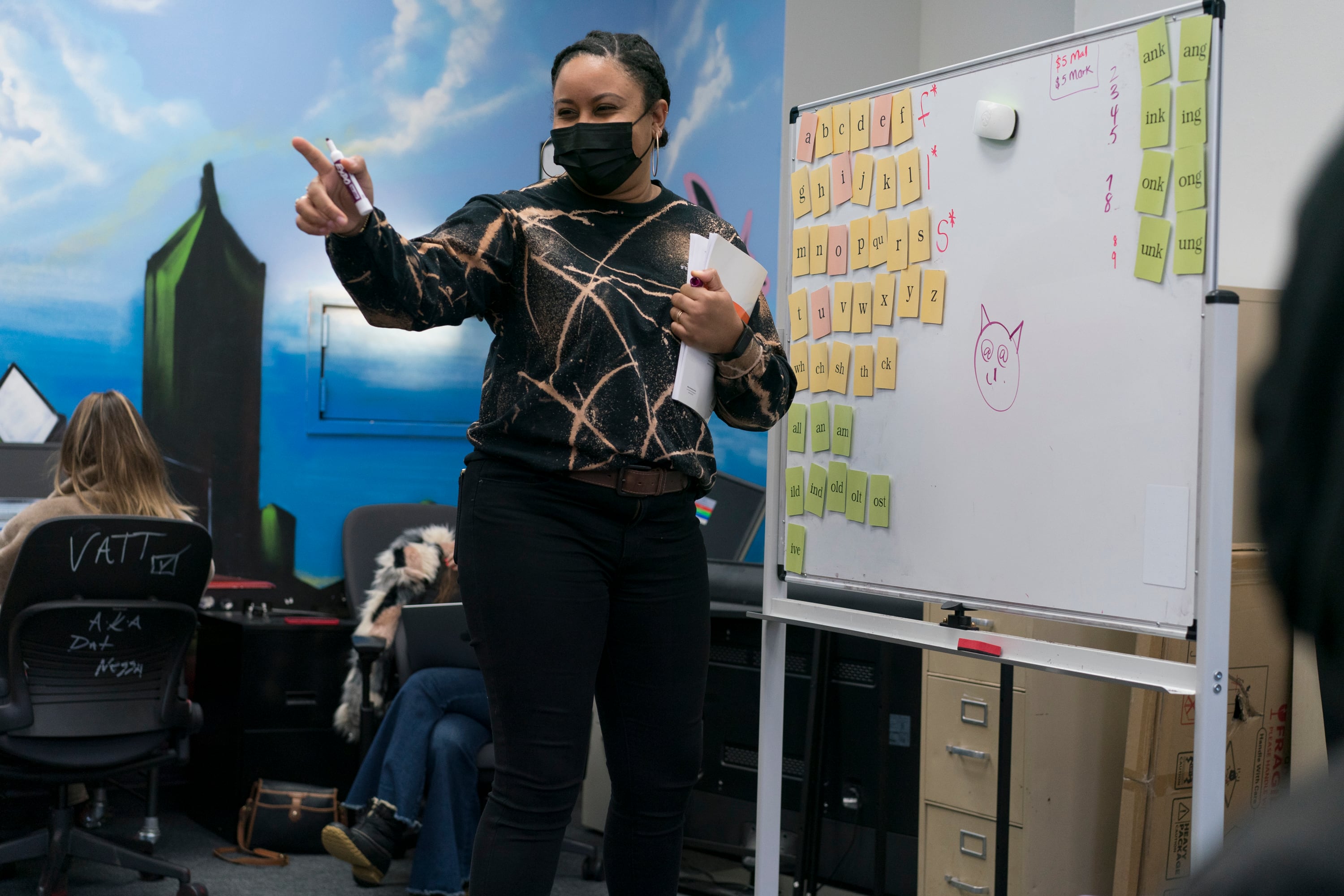Two new initiatives to recruit and support aspiring teachers at some of Chicago’s highest-need public schools are getting an infusion of federal cash.
Chicago Public Schools and DePaul University are receiving a collective $2.5 million from the U.S. Department of Education, part of a broader grant program to support innovative ways of enlisting, preparing, and retaining more educators, especially teachers of color.
The district’s program aims to offer more help and guidance to student teachers — educators-to-be working on district campuses while they pursue licensure — at high-poverty, hard-to-staff schools across the city.
DePaul University is gearing up to place 800 new teachers — career-changers and recent graduates in fields other than education — to teach special education, math, and other hard-to-fill roles at high-need neighborhood schools over the next five years.
The department announced the grants this week as U.S. Secretary of Education Miguel Cardona and First Lady Jill Biden set out on a weeklong bus tour to showcase promising pandemic recovery efforts, including those to address teacher shortages.
District officials said in a statement that its new student teacher program will work to recruit and retain more veteran teachers of color to pair with novice teachers in the classroom, offering added support and mentoring to both groups. The effort aims to build on existing programs to create a pipeline for more diverse educators, including Teach Chicago Tomorrow, which steers district students toward careers in education.
The district credited Teach Chicago Tomorrow, among other efforts, with increasing the portion of new teacher hires who are Black or Latino to roughly half of all new educators this school year.
“We know that teachers make a profound difference in our students’ lives everyday and that impact can be even greater when a teacher looks like and understands their students,” district spokeswoman Mary Ann Fergus said in a statement.
Teacher and staff turnover is a perennial challenge for the district.
After increasing the number of staff positions during the pandemic and seeing retirements and resignations in some roles pick up, CPS saw a slight uptick in the number of unfilled positions at the start of the school year. It reported an almost 5% vacancy rate, compared with almost 3.5% during the first week of the 2021-22 school year.
Here and in other districts, certain teaching positions — particularly those in special education, science, math, and others — remain tough to fill. In addition, recruiting and retaining male Black and Latino teachers has continued to be a challenge: Latino men, for example, make up about 5% of Chicago’s teachers, even as Latino boys account for almost a quarter of all students.
The federal money awarded this week from the Teacher Quality Partnership grant program seeks to address these issues, supporting efforts in which school districts and teacher prep programs partner more closely. This fall, 22 initiatives nationally received a total of $24.8 million in five-year grants, including a teacher residency program in Colorado.
“These programs help prepare, place, develop, and retain effective teachers and leaders in our schools and classrooms,” Cardona said in a statement. “Our students need quality educators now more than ever to address their academic and mental health needs.”
The federal departments of education and labor recently sent a joint letter to district and state education leaders across the country urging them to step up efforts to tackle teacher and support staff shortages. The letter called for setting competitive wages for educators, including by using federal COVID relief dollars, though it is not clear how districts might sustain wage increases once that one-time funding runs out.
Chicago’s new Pre-Service Teaching Equity Project, or P-STEP — the CPS program receiving a roughly $1.1 million Teacher Quality Partnership grant — aims to ensure schools work more closely with faculty at local college teacher preparation programs to support student teachers. In partnership with Chicago State University, Northeastern Illinois University and DePaul, the program will focus on pairing veteran teachers of color with those student educators and better supporting the mentors as well as the new teachers. The goal: more diverse novice educators qualified to teach hard-to-staff subjects accepting permanent jobs with the district.
The DePaul program, in tandem with the Academy for Urban School Leadership and CPS, is also setting out to recruit and place more Black and Latino teachers in hard-to-staff positions at district schools serving 70% or more low-income students.
Starting next fall, the aspiring teachers will participate in a residency model, receiving mentorship from a veteran teacher at one of 25 district schools and working to complete master’s degrees in education and get their teaching licenses. The project is setting itself a goal of retaining at least 85% of first-year teachers in schools with higher-than-average vacancies.
Mila Koumpilova is Chalkbeat Chicago’s senior reporter covering Chicago Public Schools. Contact Mila at mkoumpilova@chalkbeat.org.






